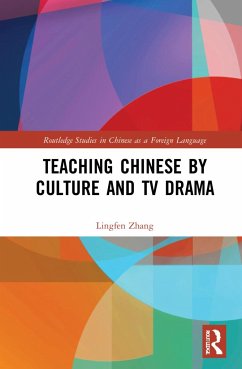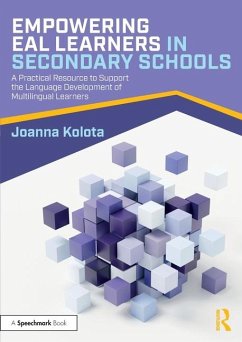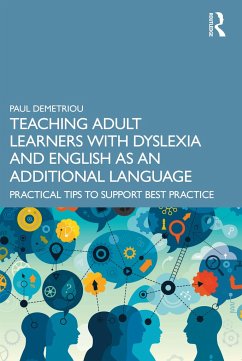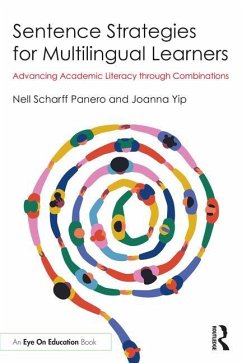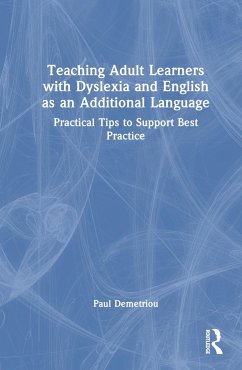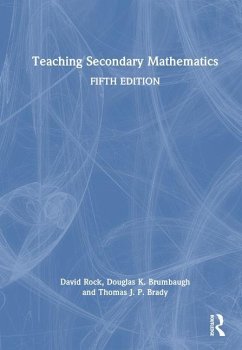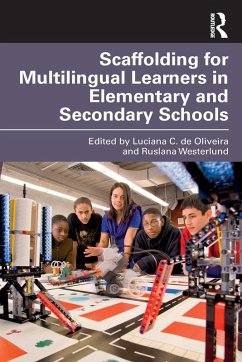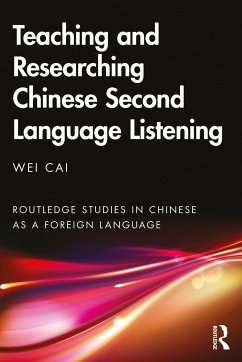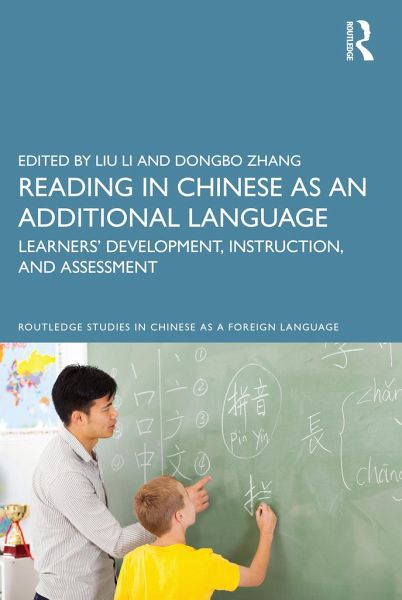
Reading in Chinese as an Additional Language
Learners' Development, Instruction, and Assessment
Herausgegeben: Li, Liu; Zhang, Dongbo
Versandkostenfrei!
Versandfertig in 6-10 Tagen
37,99 €
inkl. MwSt.

PAYBACK Punkte
19 °P sammeln!
Reading in Chinese as an Additional Language focuses on Chinese literacy acquisition, which has been considered most difficult by both learners and teachers of Chinese as an additional language (CAL).Three major areas are covered: (1) acquisition of Chinese characters; (2) reading comprehension subskills and reader's identity; (3) reading instruction and assessment. The first part delves into the foundation of Chinese literacy development-how to learn and teach Chinese characters. The second part examines various learners' reading comprehension subskills, as well as the evolution of learners' ...
Reading in Chinese as an Additional Language focuses on Chinese literacy acquisition, which has been considered most difficult by both learners and teachers of Chinese as an additional language (CAL).
Three major areas are covered: (1) acquisition of Chinese characters; (2) reading comprehension subskills and reader's identity; (3) reading instruction and assessment. The first part delves into the foundation of Chinese literacy development-how to learn and teach Chinese characters. The second part examines various learners' reading comprehension subskills, as well as the evolution of learners' literacy identity. The third part explores effective instructional methods and assessment practices for CAL reading development. Theoretically, this book provides frameworks and evidence from both cognitive and sociocultural perspectives on the nature of CAL reading development. Pedagogically, the book showcases how to teach and assess CAL reading skills. Methodologically, thisbook includes empirical studies using both qualitative and quantitative methods. In terms of scope, the book covers a much broader spectrum of issues about CAL reading research and classroom teaching than has previously been available. Writing is also discussed in several chapters. In terms of technology, the book includes discussion on how the use of computers, the Internet, and social media impacts students' Chinese literacy acquisition.
This book will help CAL researchers and educators better understand the nature of CAL reading development and become well informed about CAL classroom teaching and assessment, including the application of interactive approaches to teaching and assessing diverse reading skills.
Three major areas are covered: (1) acquisition of Chinese characters; (2) reading comprehension subskills and reader's identity; (3) reading instruction and assessment. The first part delves into the foundation of Chinese literacy development-how to learn and teach Chinese characters. The second part examines various learners' reading comprehension subskills, as well as the evolution of learners' literacy identity. The third part explores effective instructional methods and assessment practices for CAL reading development. Theoretically, this book provides frameworks and evidence from both cognitive and sociocultural perspectives on the nature of CAL reading development. Pedagogically, the book showcases how to teach and assess CAL reading skills. Methodologically, thisbook includes empirical studies using both qualitative and quantitative methods. In terms of scope, the book covers a much broader spectrum of issues about CAL reading research and classroom teaching than has previously been available. Writing is also discussed in several chapters. In terms of technology, the book includes discussion on how the use of computers, the Internet, and social media impacts students' Chinese literacy acquisition.
This book will help CAL researchers and educators better understand the nature of CAL reading development and become well informed about CAL classroom teaching and assessment, including the application of interactive approaches to teaching and assessing diverse reading skills.





